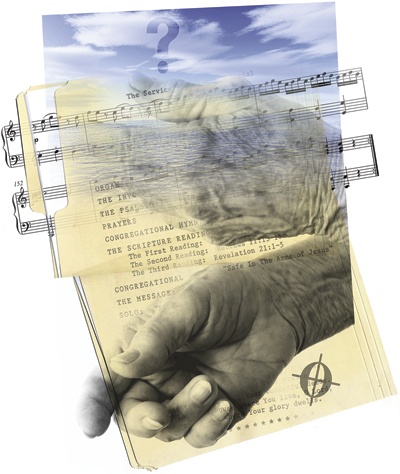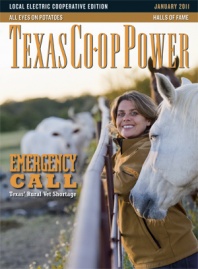The first time Mom let us know she had planned her own funeral was in the early 1990s. One afternoon in a hasty conversation about some vague future when she might perhaps die, she showed my sister and me the top drawer of a low file cabinet where a folder was stored. The manila file occupied one of the front slots among the records of my parents’ 50-plus years of marriage and family: insurance policies for houses and lives, 25 years of tax returns, warranties for appliances replaced decades ago, accounts of paid-up loans to needy grandkids, and, more recently, receipts for Medicare, hospital stays, Daddy’s hearing aids, Mom’s walker.
Occasionally, she would remind us of the folder, usually after another bout with the congestive heart failure that was beginning to debilitate her. “I’ve written out every detail,” she would say. “You don’t have to worry about a single thing. When the time comes, just go to the folder. The power of attorney is there and everything else you’ll need—even some programs from friends’ services.”
My sister and I would nod, glance away and change the subject. No one ever dared to hold or even look at the infamous folder. As long as we didn’t touch it, it wasn’t real; if it wasn’t real, we would surely never need it.
That system saw us through 15 years of hospitals, Mom’s increasingly sedentary existence, and her dependence on the pacemaker that would keep her alive until it simply couldn’t. Then in 2007, when her surgeon declared her valve repair operation successful and sent us home to rest, we believed him, never expecting his 1:30 a.m. call saying that, indeed, her heart had stopped and couldn’t be revived. I called my sister, who with her husband raced across Houston to my house; together we woke Daddy and let him know his wife of 63 years was gone.
Still in complete shock but dressed and packed for a week, we left Houston and drove half an hour before anyone spoke. We stopped for breakfast then headed toward home two hours farther south. In between sobs and questions about how to even start thinking about making arrangements, I remembered the folder.
“What folder?” my brother-in-law asked, and we explained what we would find safely at home.
For the rest of the journey, our mantra was, “When we get there, everything will be in the folder.” This promise sustained us—it was incredibly calming to know that Mom had already made all the decisions for us, so we were free to deal with the grief that alternately numbed and overwhelmed us. Every 10 minutes, one of us would forget and ask, “What hymns should we include?” The strongest of us would repeat, “It’s in the folder.” We must have said it 40 times.
When we got to the file cabinet, I opened the thin file and found a page from a pocket-sized notebook listing who got what jewelry and two photocopied programs from her friends’ recent services. NOTHING ELSE! This had to be the wrong folder. I found another with notes for Daddy’s service and other records—but nothing else for Mom. And she was no longer available to take a phone call and clear up the mystery.
The miracle was that by the time we actually located her meager notes, we were five hours into life without Mom and were composed enough to call the church and funeral home and start the process of burying someone who was still alive in our minds. With no information from her for reference, we gave ourselves over to her longtime minister and the professionals at the funeral home. It was their job to know what to ask, but they also answered our blank stares with kindness and got us through that very long day. For answers, somehow we pieced together old conversations and spied her favorite hymn hanging in the kitchen.
We never found what we had waited for, but just the promise that such a plan existed had helped us face all the decisions. The importance of that manila folder made me realize that we could all remove some of our families’ strain if we record a few of the choices they’ll have to make when we die: Formal funeral service/celebration of life? Burial/cremation? Open/closed? Endless details.
I don’t really have strong feelings about my funeral service, but I’m writing things down anyway. No matter how far I get on the list, at least my family will have somewhere to start. I’ve tossed everything into a folder and told them where to look. After all, this record isn’t for me; it’s Mom’s last lesson and a little comfort I can give my sons at a time they’ll need it most.
——————–
Freelance writer Reba Kochersperger lives in Houston.


